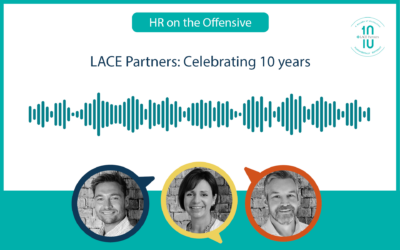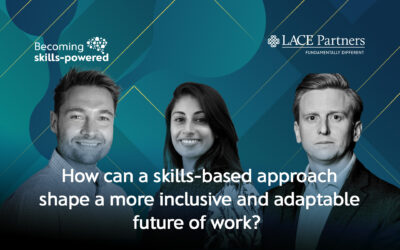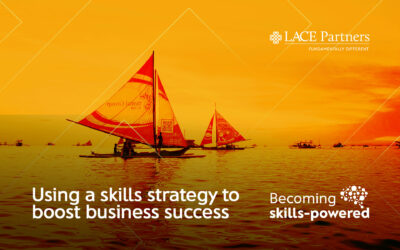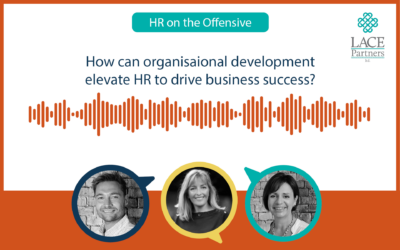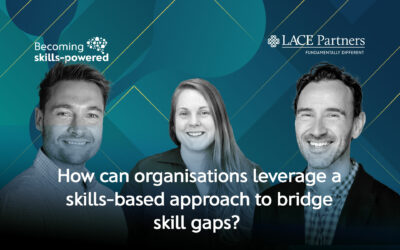We’ve all heard the cries – HR desperately needs new skills. Let’s dig deeper to discover what exactly those skills are, where we can source them from, and what that means for the future of HR.
First up, some familiar scene setting:
HR is on the move
The HR world is changing. Technical skills are in increasing demand. New regulations are having an impact. Economic recovery is making waves. Calls for culture change are bringing talent-focused skills back to the fore, in fresh ways. Leadership development is evolving, talent attraction and management are shifting, and performance management is taking on different guises.
Amidst this change, the question for us all is: ‘Are our businesses and HR functions ready to lead and sustain these shifts?’
We need to grow the skills to support this change
During a couple of recent discussions with HR directors, a key concern consistently bubbled up. Everyone’s wondering how to grow new skills within HR – the skills our future demands.
One global telecoms organisation has recognised the need to arm their HR business partners with programmatic change management skills, while an oil and gas provider has recently trained their business partners on organisational design and change leadership.
Both these examples recognise the growing need for HR business partners to be at the forefront of change programmes in organisations, dealing with people issues while deploying project management skills. The two must go hand in hand.
Finding new skills in diverse places
So where to we find these valuable new skills? Some organisations are beginning to realise these aren’t traditional HR strengths. Hence the hiring of professional project managers, for example. The pressing need for new skills isn’t just something HR business partners are facing either. We’re seeing it in other areas, too. In shared services, social media savvy and data analytics know-how are in high demand. These skills are not yet readily available within the HR profession, promoting some organisations to look to functions like marketing and the actuarial market to source the best talent.
One Switzerland-based insurance company recently undertook a programme to develop in-house HR analytics skills, recognising this would be an 18 month to 2 year investment. In the UK, a telecoms company has partnered with its umbrella brand’s finance function to share the staffing of analytics roles.
Cost control and reduction are in increasing demand, as are creative skills. Some organisations are looking to the recruitment market to get these needs met, while others are doing things differently by partnering with educational establishments to source these skills, as well as original research.
Reshaping internal careers
The emergence of and demand for these new skills leaves HR directors with a dilemma. Do you import these new skills from outside and/or partner with others, or should you put the effort into nurturing and growing these skills internally?
No matter which option you choose, career paths within HR will be impacted. Right now, those uncertain paths are in need of signposting. Universities and professional bodies governing HR have been slow to recognise these new skills and evolve training and certification for them. Within HR functions, in our post-Ulrich industry, we’ve not yet determined how to deliver promising career paths which touch on a wide enough range of skills to enable a new breed of HR professionals to progress and thrive.
In the Ulrich model, work is clearly divided. By its very nature, the model restricts movement between groups. At its extreme, it can hinder or stop the development of the breadth of skills needed to flourish in HR. Some organisations are exacerbating this problem, by introducing new skills in old ways. Many are taking the view that analytics is simply an HR operations issue, not an HR-wide one. It’s tough to break out of the silo mentality, it seems…
Breaking the mould
That said, the demand for new skills could provide the perfect opportunity to bridge traditional barriers, bringing together business partners, operations and centres of expertise to collaborate in working out the best way to acquire and manage these much-needed capabilities.
One organisation is onto a winner, using traditional silos to create a more fluid future breed of worker. It’s launched a specific career path within HR, in which individuals spend time working in all three ‘areas’ of the function to understand the business problems, strategic solutions and operational approaches at play. They’re creating a sustainable team, able to understand and apply analytics in order to solve complex, cutting-edge business challenges.
The future may be uncertain, but one thing’s for sure – with a wide array of new skill sets in the mix, HR will be richer and more rewarding than ever before.
Aaron Alburey FCIPD, Member of the HR Guild, father to the L, A, C, and E (Lauren, Alex, Caleb and Eve) in LACE Partners and bouldering enthusiast.


